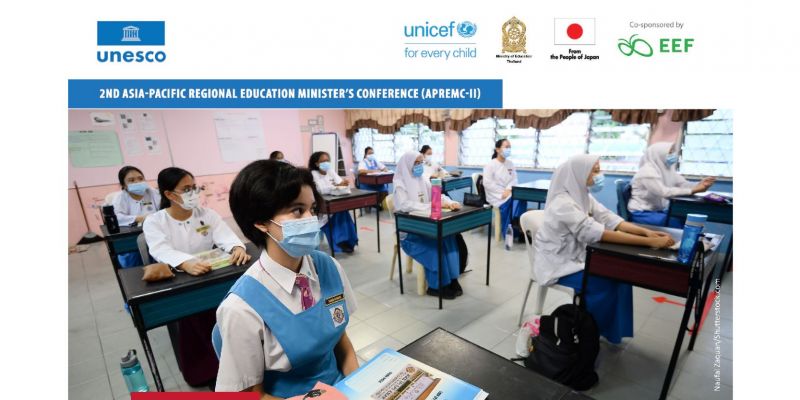Technical paper: Learning recovery and addressing the learning crisis
This background paper was prepared to inform the thematic panel discussion on Learning Recovery and Addressing the Learning Crisis at the 2nd Asia-Pacific Regional Education Ministerial Conference (APREMC-II) in June 2022.
The purpose of this paper is to provide key recommendations for the provision and delivery of school education to facilitate post-COVID-19 learning recovery in the immediate and short-term. The recommendations focus on how education systems could provide safe schools and deliver a more equitable, inclusive and relevant education for all learners.
The pandemic has disrupted education for approximately 1.6 billion students globally, forced school closures and shifted learning towards remote and blended modalities (Global Education Evidence Advisory Panel, 2022; UNESCO, 2021a; UNESCO & UNICEF, 2022).
Such disruptions threaten to deepen the ‘learning crisis’ that existed prior to the pandemic and impede the progress made towards access to quality education, particularly for the most vulnerable learners.
As education systems in the Asia-Pacific region seek to recover from the pandemic by reopening schools, it is incumbent on governments to identify recovery strategies that have enabled education access and learning continuity and to determine the approaches that best support education systems’ resilience, post-pandemic.
This will be challenging as school closures in the region varied significantly, with some schools, such as those in India (eighty-two weeks), Indonesia (seventy-seven weeks) and Bangladesh (seventy-three weeks), being fully or partially closed for more than a year.
Those in other countries were closed for much less, such as in Vanuatu (four weeks), Papua New Guinea (six weeks) and the Solomon Islands (seven weeks), up to the date of 30 November 2021 (UNESCO, 2021a). Examples provided in the background paper draw from a range of countries that were fully or partially closed for different durations during the response and recovery phases of the pandemic.
This introduction presents the analytical framework used to guide the research, with a focus on learning recovery within education emergency management. Definitions of Response-Recovery-Preparation emergency management phases are provided.
Throughout the paper, selected country examples are presented in boxes to highlight key curriculum, pedagogy and assessment innovations implemented by Asia-Pacific countries.
The focus of this paper is on learning recovery. This paper also presents evidence about sustaining recovery as relevant for the ongoing adoption of curriculum adaption, flexible learning strategies and different assessment approaches to address the learning crisis.
You can find the policy brief here.
To learn more about the conference and other downloadable materials, click here.







